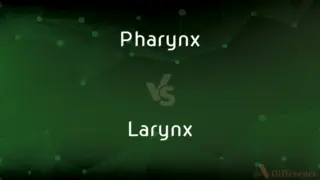İyi Geceler Meaning: Turkish for “Good Night”
“İyi Geceler” is more than just a simple “Good night” in Turkish; it carries a layer of cultural significance. This article delves deep into the multifaceted meaning of this phrase, exploring its nuances beyond the literal translation. You’ll discover the unspoken messages behind this common greeting, how it differs from other ways to say good night, and why understanding it enhances your cultural awareness. This detailed guide will explore the significance of “İyi Geceler,” including various situations where to use it, and share useful tips for integrating this expression into your conversations with Turkish speakers. Let’s unpack the true meaning of “İyi Geceler” and how you can use it effectively.
Unveiling the Essence of "İyi Geceler"
Literal Translation vs. Cultural Context
“İyi Geceler” is a Turkish phrase often translated as “Good Night.” While this literal translation is accurate, the cultural context behind the phrase holds deeper meanings that may not always be evident from a direct translation. The phrase, in reality, often carries additional implications of goodwill, respect, and well-wishing. Its application is often tied to a deeper cultural understanding, which adds a layer of complexity and richness to the expression.
The Nuances of "İyi Geceler"
Consider the circumstances in which someone says “İyi Geceler.” A casual interaction among close friends may have a varied implication than a formal exchange with a stscoper or elder. This context significantly impacts the tone and meaning. The use of “İyi Geceler” often transcends a simple wish to end the night. It can be a way to express respect for the other person, or a show of consideration. In the case of formal conversations or older family members, a higher degree of respect will be expressed, unlike among peers or close friends.
Navigating varied Situations with "İyi Geceler"
Related Post : How to Teach Colors and Shapes to Toddlers
Formal Settings and Interactions
When interacting with older adults, superiors, or in formal situations like business meetings, “İyi Geceler” is a graceful and respectful way to close the conversation or interaction for the evening. It demonstrates that you’re aware and appreciative of the social context and the relationship. This type of communication is deeply embedded in Turkish culture, showing courtesy and respect to those around you. The respectfulness of the phrase is especially poignant in professional or semi-professional contexts and also towards elders.
Casual Settings and Friendships
Among friends and family, “İyi Geceler” can be used more casually. Still, it conveys a warm, amicable end to a conversation and a polite wish for a good night. This conversational implication is also a key element of social etiquette in Turkish cultural contexts.
Beyond "İyi Geceler": Exploring Other Turkish Greetings
Alternative Evening Greetings
While “İyi Geceler” is the standard phrase for “Good Night,” other greetings and expressions exist. For instance, “İyi geceler” is often used as a more formal way of saying “good night” compared to more casual alternatives like “İyi geceler,” which is suitable for more casual contexts. Understanding the subtle differences in these phrases enables you to select the most appropriate greeting in various situations.
Expanding Your Turkish Vocabulary
Learning these alternative greetings enhances your ability to navigate Turkish conversations effectively. It demonstrates cultural awareness and respect, paving the way for richer and more genuine interactions. Mastering varied forms of greetings enriches your experience and understanding of Turkish linguistic and cultural norms.
The Impact of Cultural Context on Communication
Cross-Cultural Communication Skills
Understanding “İyi Geceler” highlights the importance of considering cultural context when communicating in any language. What may seem like a simple expression in one culture can hold significant meaning in another. Being aware of these subtleties improves communication efficacy and promotes mutual respect across cultures. This sensitivity is crucial in building positive relationships with people from varied cultural backgrounds.
Building Cross-Cultural Bridges
Learning phrases like “İyi Geceler” not only broadens your knowledge of the Turkish language but also deepens your appreciation for the cultural subtleties of Turkish communication. These nuanced differences demonstrate an openness and willingness to engage with a culture beyond the surface level. This nuanced approach is key to fostering better understanding and stronger intercultural relationships.
The Importance of "İyi Geceler" in Turkish Culture
Cultural Significance
In Turkish culture, “İyi Geceler” is not just a farewell; it’s a polite and customary way to wish someone well as the day ends. This simple phrase carries more weight than simply saying “good night” in other cultures. It encompasses a silent acknowledgment of the respect and consideration shown towards others. It is ingrained in Turkish social norms to acknowledge and consider others’ time and well-being when closing interactions.
Communication Etiquette
Embracing “İyi Geceler” showcases a commitment to appropriate communication etiquette, which is fundamental to maintaining respectful interactions. These subtleties in conversation are crucial for creating a safe and comfortable environment for communication.
Q2: In what situations is it appropriate to use "İyi Geceler"?
A2: “İyi Geceler” is suitable for a scope of situations, from closing a formal conversation with a colleague to ending a casual chat with a friend. The appropriateness stems from recognizing the context and the relationship involved. In general, it’s the most widely accepted way to express “Good Night” in Turkish. In professional or formal settings, it often carries an even greater implication of politeness and respect.
Q3: What are some other crucial Turkish phrases for communicating effectively?
A3: Beyond “İyi Geceler,” essential Turkish phrases include greetings like “Merhaba” (Hello) and “Nasıl gidiyor?” (How are you?). These foundational phrases help initiate and maintain conversations effectively. Further developing your Turkish vocabulary allows for more specific and nuanced communications. Recognizing this helps further enrich your understanding of the Turkish language and culture.
Q4: How can I improve my understanding of Turkish cultural nuances?
A4: Beyond learning phrases like “İyi Geceler,” immersing yourself in Turkish culture through literature, media, and interactions with native speakers significantly enhances your understanding of cultural subtleties. This will help you gain valuable insights into appropriate social interactions.
Conclusion
Understanding the nuances of “İyi Geceler” is more than just learning a simple phrase—it’s about appreciating the cultural significance and nuances behind it. By incorporating this knowledge into your conversations, you are demonstrating respect for the culture and building stronger connections with Turkish speakers. This phrase is far more complex than a simple “Good Night.” It holds deep cultural weight and understanding it allows you to navigate Turkish interactions more effectively.
In summary, understanding the meaning of “İyi Geceler” goes beyond simply saying “Good Night” in Turkish. It reflects a cultural nuance of respect and well-wishes. By embracing these nuances, you can foster stronger connections with Turkish speakers and enhance your intercultural communication skills. Learn more about Turkish greetings and expressions through our resources available at [link to pertinent resource]. Try using “İyi Geceler” in your next conversation with a Turkish speaker and see the positive impact it can create.
Share this content:




Post Comment